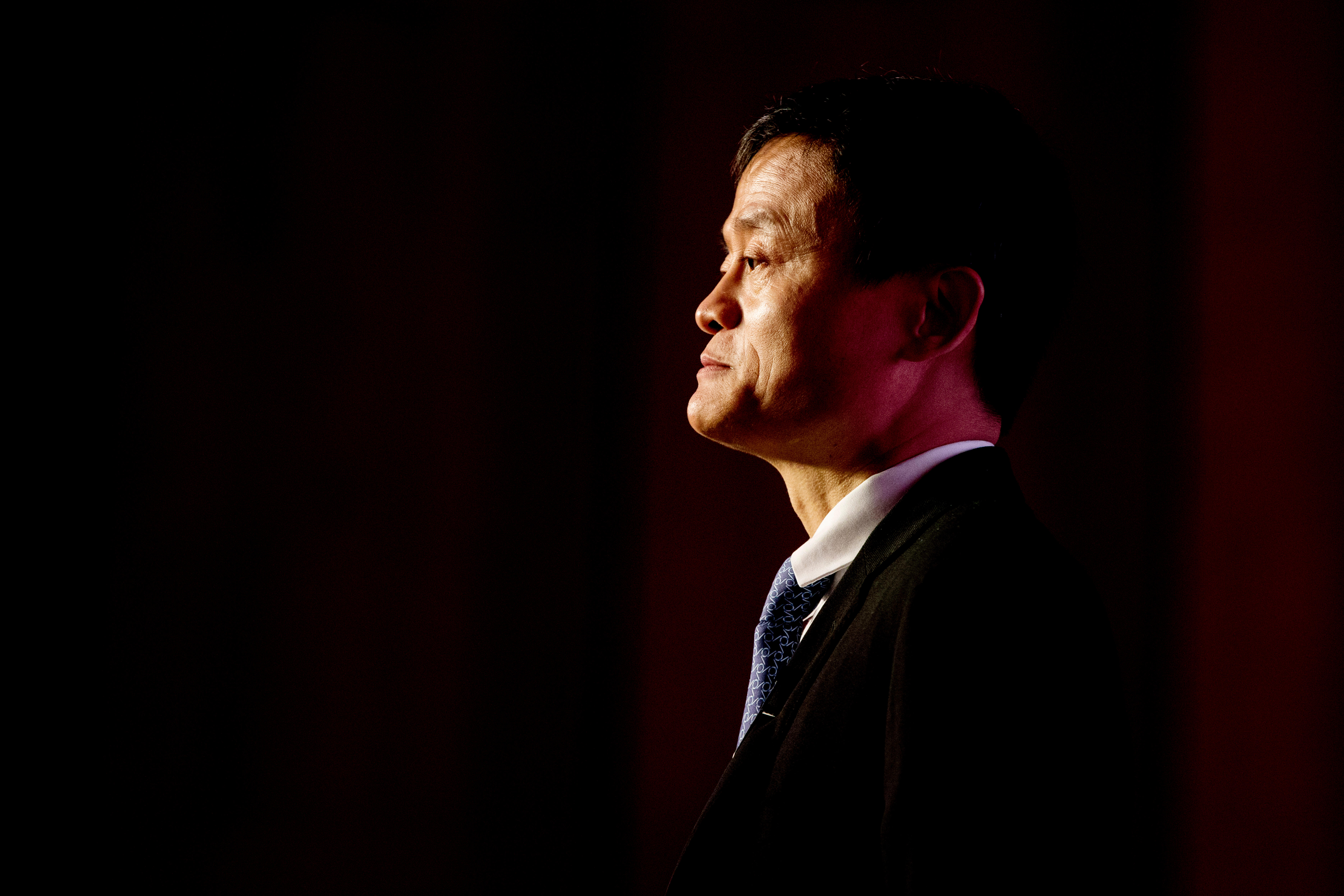magazine text block
Few could have predicted the meteoric rise of Jack Ma and his tech giant Alibaba when it launched as an e-commerce platform in 1999. Two decades later, that rise is as profound and important as any of the staggering changes that have defined the “Asian Century” to date. When Alibaba was first listed on the New York Stock Exchange in 2014, it was the largest initial public offering in history. In the years since its launch, Ma’s company and its subsidiaries have extended their reach into every stratum of Chinese society, and far beyond. Alibaba Group’s marketplaces stretch across 200 countries and are responsible for more than 11% of all retail sales in China.
If you shop online or stream music in China, if your company uses the cloud, if you buy a snack from a street vendor, chances are you’ve used one of Ma’s products. In the two decades since Alibaba launched, its growth has traced that of China’s internet explosion. Here, in five questions, Duncan Clark, Asia Society trustee and author of Alibaba: The House That Jack Ma Built, discusses the rise of Jack Ma and Alibaba, and the changes in China that have made such entrepreneurism possible.
Were Jack Ma’s achievements, or the overall success of Alibaba, unlikely in any way? Could you see someone like Ma emerging from the tech landscape today?
Given Ma’s lack of connections and wealth, few would have predicted his rise. Ma struggled as a student and failed in his first two ventures. His story is a story of endurance. He did, though, display a talent for seeing the essential trends ahead of others. He saw it in the internet in the mid-1990s — five years before he founded Alibaba — and in its applicability to helping small private exporters first in selling overseas and then, crucially, in selling to Chinese consumers.
Today, the rise of companies like ByteDance (Toutiao), Pinduoduo, and others shows that you can still come from behind by embracing tech and seeing new opportunities emerge before the incumbents and competitors do. Maybe, though, it’s even less likely now for an English teacher to come from nowhere and launch a successful company. Tech-savvy entrepreneurs are really the ones grasping the opportunities today.
In what ways does Ma’s rise reflect changing opportunities in China over the past two decades?
Twenty years in China is like a century in the U.S. — the physical and psychological make-up of China has changed so completely. Now China is far beyond the “copy to China” ideas of the dotcom era. In many ways we can see how the mass online and mobile market combined with ample (perhaps too much) capital, and entrepreneurs have created a “white heat” of new business creation and innovation.
magazine quote block
magazine text block
For someone unfamiliar with China, can you explain the role the internet plays there — and particularly Alibaba?
A life in China without the internet is almost like a life without oxygen. It is hard to survive without the internet, and in China that means mobile internet, and not just in big cities (99% of access is via mobile). The mobile coverage is ubiquitous, fast, and inexpensive. And there are so many choices of phones, from the high-end iPhones and Huaweis all the way to low-cost but still powerful smartphones from a plethora of providers.
Yes, the “great firewall” blocks access to some of the most familiar sites in the West, from Google to Facebook, Instagram, Twitter, and so on, but then the local apps are highly diversified and tailored to local needs of consumers. There are applications like the ubiquitous mobile payment/QR codes from Alipay and Tencent WeChat Pay that make the West look positively antiquated. Utilities and government services from paying taxes to parking are also easily available online or through in-app features on Alipay and WeChat. Online/mobile life here really is effortless.
And where does Alibaba sit in this ecosystem?
Alibaba is the biggest player in e-commerce and increasingly in offline or on-and-offline retail through Hema (Fresh Hippo) supermarkets and as a driver of payment (with Tencent) and other fintech offerings, logistics, entertainment, healthcare, and more.
What is Ma’s biggest legacy?
The fusion of China’s massive, pent-up entrepreneurial know-how with the internet, creating private companies that have eclipsed even state-owned incumbents in their scale and reach.
Before the internet, most entrepreneurs were very local in scale. The internet opened up national and even international opportunities and visibility to them. And Alibaba’s platforms and investments in logistics companies helped drastically reduce the friction and barriers to scale that had held entrepreneurs back in the past. Jack Ma is forever tied to that entrepreneurial and tech breakthrough for China.





